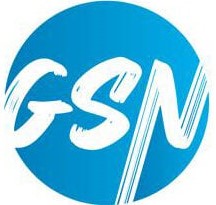Latest Articles:
Aldi Süd Launches Local Supply Center With 115 Apartments In Waldbronn, Near Karlsruhe
Aldi Süd Launches Local Supply Center! After approximately two and a half years of construction, the retailers are unveiling their new local supply centre in Waldbronn today.
Developed by ALDI SÜD, this mixed-use property near Karlsruhe combines retail and residential spaces, enhancing the local infrastructure. Nearly a quarter of the...
Popular:
Supermarket Trends
Unleashing the Power of Heike Schulz’s Market Knowledge for Business Success
Unleashing the Power of Heike Schulz's Market Knowledge for...
Supermarket Trends
Sainsbury’s introduces innovative solution to reduce food waste: crownless pineapples
This week, Sainsbury’s has taken another important step in...
A-Brands
Grocery Retail Insight - A-Brands Updates"
Vitafoods Europe Reveals Complete List Of Speakers For 2024 Event
Vitafoods Europe Reveals Complete List Of Speakers For 2024 Event!
Vitafoods Europe is a widespread occasion where specialists from...
Unilever Innovates Laundry Categories With Evolving Habits And Technology
Unilever Innovates Laundry Categories With Evolving Habits And Technology
Responding to consumers’ evolving household laundry needs and changing technology,...
Private Label
The Demand For Private-Label Pet Food Is Skyrocketing In Eastern Europe
Private-Label Pet Food Over the beyond few years, there has been a substantial shift within the European pet grocery store, particularly in...
Fresh Produce
Aurivo, Irish dairy enterprise, Sees Revenue, Profit Decline In Fy 2023
Irish dairy enterprise Aurivo pronounced an excellent 71.4% fall in working profit, totalling €5.1 million for the 2023 financial year, as compared...
Retail Technology & Innovation
Food
Packaging
Packaging
This Year, 220 Million Tonnes Of Plastic Waste Are Expected To Be Generated
This Year, 220 Million tons Of Plastic Waste Are...
Packaging
Jumbo Eliminates Plastic Covers From Certain Vegetables
Jumbo Eliminates Plastic Covers From Certain Vegetables
The Dutch retailer...
Packaging
O-I Glass Joins Sustainable Wine Roundtable for Global Sustainability
O-I Glass Joins Sustainable Wine Roundtable! O-I Glass, an...
Packaging
Ucima in Italy marks 40th year with industry plans
Ucima in Italy marks 40th year with industry plans!...
Packaging
One Harvest commits to recyclable packaging by 2025
In a bold move towards sustainability, Australia's leading salad...
Latest Articles
Supermarket Trends
Aldi Süd Launches Local Supply Center With 115 Apartments In Waldbronn, Near Karlsruhe
Aldi Süd Launches Local Supply Center! After approximately two and a half years of construction, the retailers are unveiling their new local supply centre...
A-Brands
Vitafoods Europe Reveals Complete List Of Speakers For 2024 Event
Vitafoods Europe Reveals Complete List Of Speakers For 2024 Event!
Vitafoods Europe is a widespread occasion where specialists from the health meals and supplement industries...
Private Label
The Demand For Private-Label Pet Food Is Skyrocketing In Eastern Europe
Private-Label Pet Food Over the beyond few years, there has been a substantial shift within the European pet grocery store, particularly in Eastern Europe,...
Fresh Produce
Aurivo, Irish dairy enterprise, Sees Revenue, Profit Decline In Fy 2023
Irish dairy enterprise Aurivo pronounced an excellent 71.4% fall in working profit, totalling €5.1 million for the 2023 financial year, as compared with €17.8...
Supermarket Trends
Amazon Clarifies Strategy For Dash Carts And Just Walk Out Technology
Amazon Clarifies Strategy For Dash Carts And Just Walk Out Technology
Amazon has clarified its plans for its cutting-edge shopping technology, revealing plans to focus...
A-Brands
Unilever Innovates Laundry Categories With Evolving Habits And Technology
Unilever Innovates Laundry Categories With Evolving Habits And Technology
Responding to consumers’ evolving household laundry needs and changing technology, Unilever has unveiled its latest innovation,...
Supermarket Trends
Target Debuts Exclusive Pickleball Collection With Tennis Brand Prince
Target Debuts Exclusive Pickleball Collection With Tennis Brand Prince
Minneapolis-based Target Corporation made waves with its latest announcement on April 16, 2024, revealing an exciting...
Supermarket Trends
Supermarket Trends
Aldi Süd Launches Local Supply Center With 115 Apartments In Waldbronn, Near Karlsruhe
Aldi Süd Launches Local Supply Center! After approximately two...
Supermarket Trends
Amazon Clarifies Strategy For Dash Carts And Just Walk Out Technology
Amazon Clarifies Strategy For Dash Carts And Just Walk...
Supermarket Trends
Target Debuts Exclusive Pickleball Collection With Tennis Brand Prince
Target Debuts Exclusive Pickleball Collection With Tennis Brand Prince
Minneapolis-based...
Subscribe to Our Weekly Newsletter.




